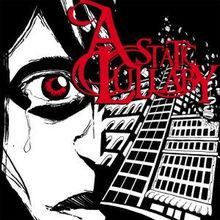Tom Buchanan: A Static Character
Tom Buchanan, a character from F. Scott Fitzgerald’s classic novel “The Great Gatsby,” is often regarded as a static figure. This article delves into the various dimensions of Buchanan’s character, exploring why he remains a static entity throughout the novel.
Physical Appearance and Social Status

Tom Buchanan’s physical appearance is described as imposing and intimidating. He is tall, with broad shoulders, and his presence is commanding. His social status is also a significant aspect of his character. As a wealthy and influential man, Buchanan holds a prominent position in society. However, his physical attributes and social status do not evolve throughout the novel, making him a static character.
| Physical Appearance | Social Status |
|---|---|
| Imposing, tall, broad shoulders | Wealthy, influential, prominent |
Personality Traits

Tom Buchanan’s personality traits are also static throughout the novel. He is portrayed as a man of strong opinions and a sense of entitlement. Buchanan is often seen as cold and unemotional, which is evident in his relationship with his wife, Daisy. Despite the changes in the plot, Buchanan’s personality remains unchanged, contributing to his static nature.
Relationships and Interactions

Tom Buchanan’s relationships and interactions with other characters also remain static. His relationship with Daisy is strained and filled with tension. Buchanan’s infidelity and his treatment of Myrtle Wilson, his mistress, further highlight his unchanging nature. His interactions with Gatsby, the protagonist, are also limited and do not evolve, reinforcing his static character.
Role in the Novel
Tom Buchanan plays a crucial role in “The Great Gatsby.” He represents the old money and the corrupting influence of wealth on the American Dream. However, his role in the novel does not change, and he remains a static character throughout the story. This static nature allows readers to observe the consequences of wealth and social status without the distraction of character development.
Symbolism and Themes
Tom Buchanan’s static character serves as a symbol for the corruption and decay of the American Dream. His unchanging nature highlights the flaws in the American Dream, as represented by the wealthy elite. The static nature of Buchanan’s character also contributes to the novel’s themes of class, wealth, and the pursuit of happiness.
Conclusion
In conclusion, Tom Buchanan is a static character in “The Great Gatsby.” His physical appearance, personality traits, relationships, and role in the novel remain unchanged throughout the story. This static nature allows readers to observe the consequences of wealth and social status without the distraction of character development. Buchanan’s character serves as a symbol for the corruption and decay of the American Dream, contributing to the novel’s exploration of class, wealth, and the pursuit of happiness.




